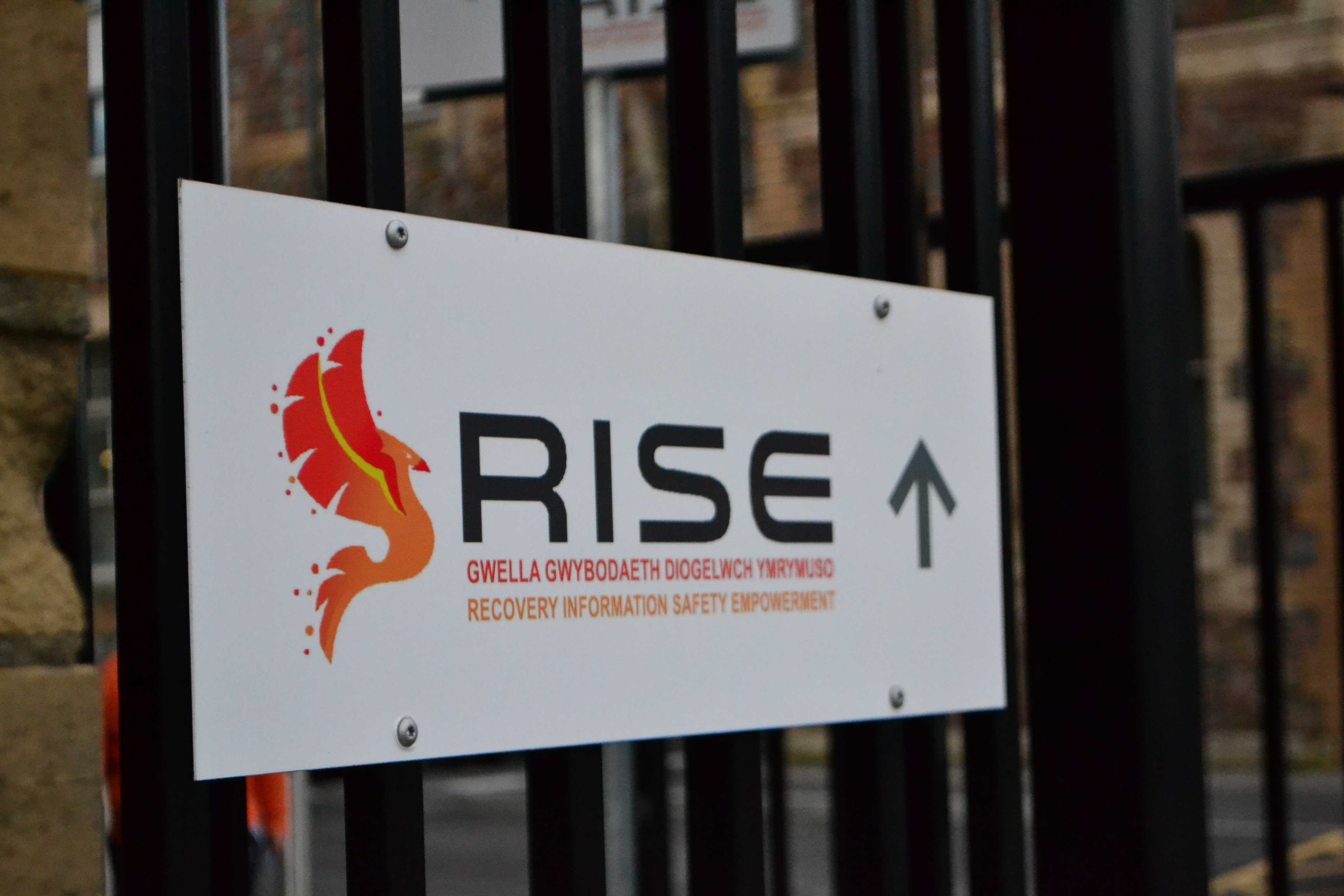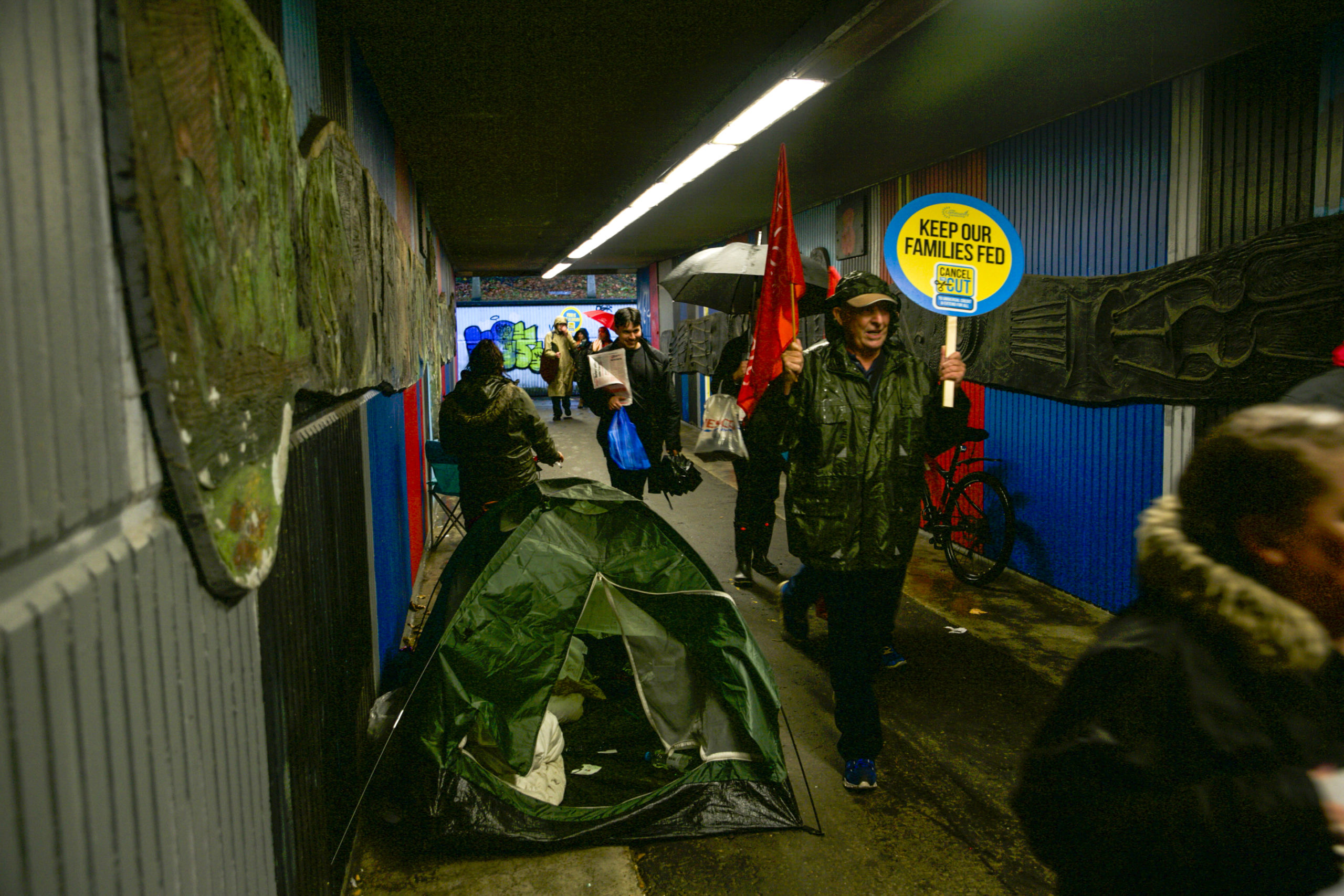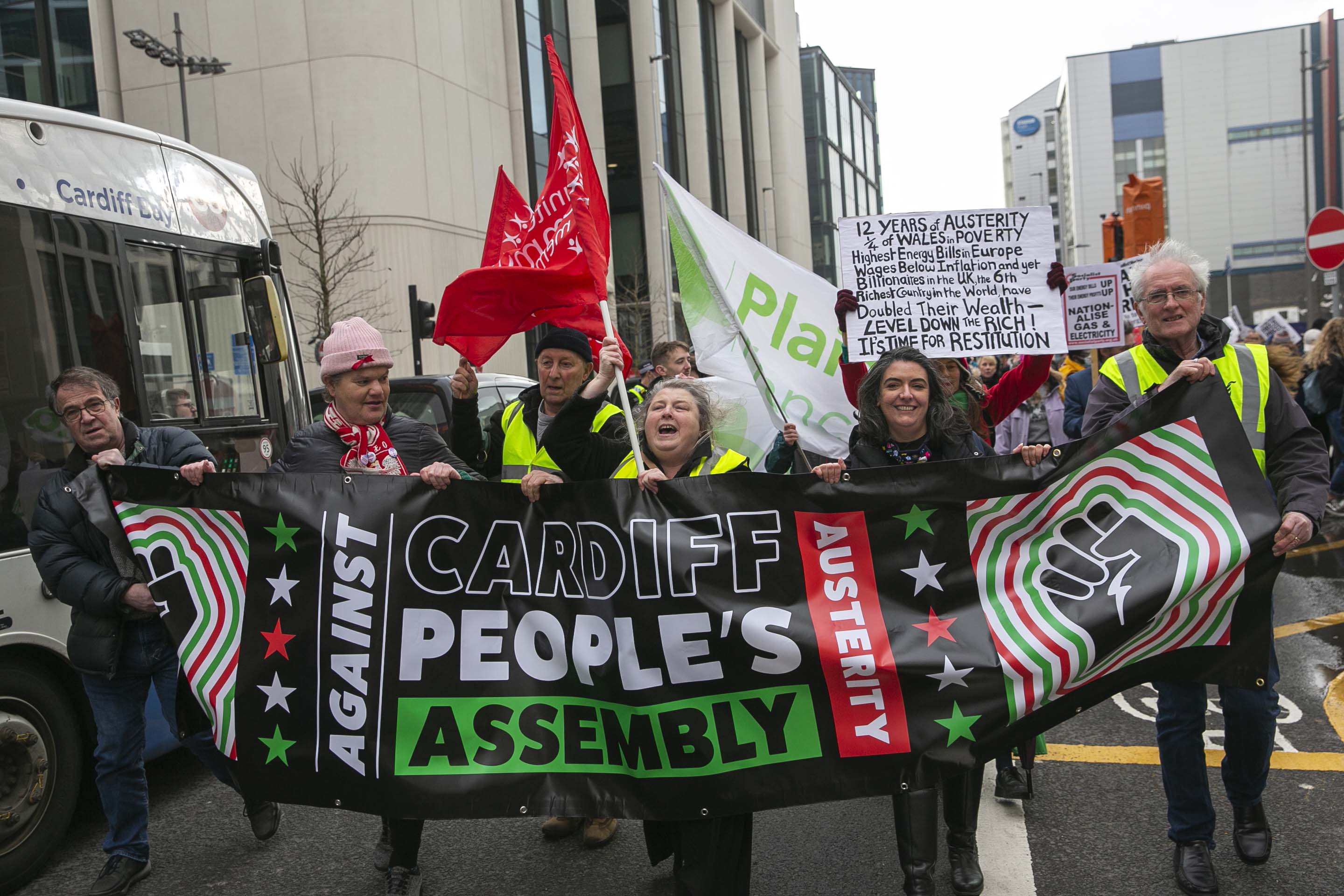
Wales TUC Condemns ‘Illegal’ Treatment Of Domestic Violence Workers In Cardiff Following Voice Investigation
• After voice.wales article revealed shocking levels of low pay among essential domestic violence workers in Cardiff, leading trade union body says the practice could be breaking the law.
• Workers from other parts of Wales also share their experience of low pay in the sector as actor Michael Sheen hits out at broken funding model.
In January, voice.wales revealed that RISE, a 24/7 service which aims to support, advocate, and provide places of safety for survivors of domestic and sexual violence and abuse, pays workers just £20 per on-call shift.
The service is commissioned by Cardiff Council, with Cardiff Women’s Aid the lead provider and Bawso and Llamau delivery partners. Neither the council nor the delivery partners denied the £20 on-call shift payment when we put this to them.
While there is no dispute over how essential this service is – with 15,000+ phone calls to the RISE helpline last year and 9,000+ referrals – the workers we spoke to are feeling severely undervalued.
During these on-call shifts, advisers are dealing with often traumatic phone-calls from women and individuals trapped with their perpetrators. Regardless of whether the phone rings once or one hundred times a night, workers are paid a flat-rate of £20 per on-call shift. One worker described to us how she often gets worried about going to the toilet and missing a call, and therefore takes her phone with her.
The on-call shift starts at 7:00pm and finishes the next morning at 9:00am. Alongside these on-call night shifts, there’s also a late shift, which runs between 11:30am and 7:00pm.
One worker Faith Clark spoke to for the report, who we called Andrea to protect her identity, told us that due to understaffing issues, workers can often be asked to cover part of the late shift before going onto their on-call shift, meaning one runs straight into the other. There are no unsocial hours paid for this or even the standard hourly rate – just the £20 for the on-call shift.
The Wales Trades Union Congress (TUC) Cymru, have responded to the story, telling voice.wales that the practice could be breaking the law.
“If someone is not receiving at least the statutory minimum wage for hours worked during an on-call shift, their employer is breaking the law,” a spokesperson said. “If this is happening it’s obviously wrong, but not surprising – the enforcement of employment rights like the minimum wage, which lies with the UK government, is extremely weak throughout the UK.”
They continued:
“We’re not aware that public sector bodies are currently auditing their supply chains to identify illegal employment practises like this. We hope that upcoming legislation in relation to procurement of public services will help change this position, so more workers can be better protected at work.”
“These stories show that so much more work is urgently required so that no public funds are contributing to illegal and bad employment practices.”
Previously, workers were required to do these on-call shifts for the whole week at the same rate of £20 a shift. After workers challenged this,however, they are now required to do these over two days rather than seven, but the overall number of days and low pay remained the same.
It appears that these low-paid on-call shifts aren’t isolated to Cardiff-based services, either.
One woman who read the original article shared her experience of how “in one Carmarthenshire [organisation] we weren’t paid a penny extra to do on-call, this includes weekday night shifts and whole weekends.”
“If we spent hours on the phone to someone in crisis, we could not take that time back, even if you’d be on the phone organising getting someone to safety, which could take hours,” the ex-employee wrote. “If we were up all night, we were still expected to be at our desks the next morning regardless.”
She also described how the organisation she worked for wouldn’t let staff do “set days on-call” which made childcare extremely difficult to organise, particularly for single mothers.
The worker said she worked for the organisation for “almost two decades”, but “had a pay increase just twice.”
“The cost of living was rising,” she continued, “but we were told that we were being paid what we were worth. It’s important to point out that we ALL went above and beyond for the organisation, but we never so much as got a ‘thank you’, instead it just became expected.”
The article also attracted the attention of Welsh actor Michael Sheen, who has declared himself as a “not-for-profit actor” and who supports a number of social justice causes.
Sheen, who has funded the likes of the 2019 Homeless World Cup and is a passionate campaigner for the NHS, tweeted in response to the article: “Knowing how much delivery partners like Llamau have struggled themselves with funding is this something that Welsh gov needs to look at in terms of changing the entire funding model?”
Welsh Women’s Aid, whose organisation in Cardiff is a delivery partner of the RISE project, have themselves hit out at how these services are funded in Wales. They explained in their latest State of the Sector report, Violence against Women, Domestic Abuse and Sexual Violence (VAWDASV) specialist support services are “currently funded through a patchwork of local, regional and national commissioning and grants as well as charitable funding pots – often with short contracts.”
While each local authority is provided with grant funding from the Welsh Government to invest in VAWDASV, “there remain differing funding levels and processes according to different local authorities, Health Boards and Police and Crime Commissioners”.
In the coming weeks, voice.wales will be speaking to more workers across the sector, as campaigners who are trying to ensure a properly funded service. From what has been uncovered so far, it is clear that the situation at RISE is far from isolated.


